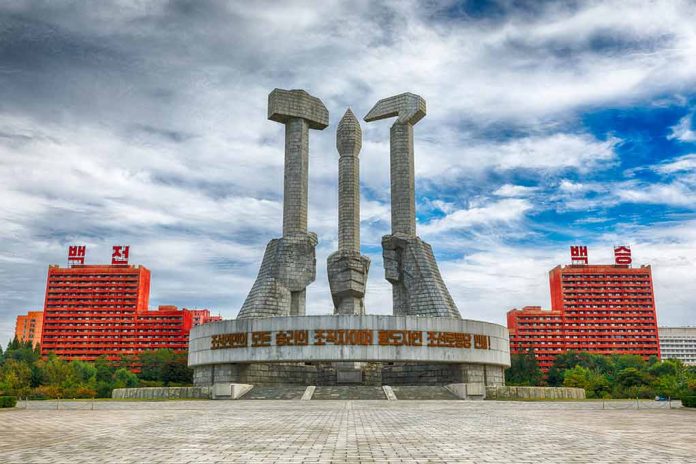
Kim Jong Un has shockingly executed 30 high-ranking officials over the catastrophic flooding and landslides that claimed 4,000 lives in North Korea. How did this extreme action come about?
At a Glance
- Kim Jong-Un ordered the execution of up to 30 officials for failing to prevent massive flooding and landslides.
- Approximately 4,000 people died due to the disaster.
- The executed officials were charged with corruption and dereliction of duty.
- Kim Jong-Un surveyed the devastated areas, ordered strict punishments.
Drastic Measures for a Drastic Leader
North Korea’s supreme leader, Kim Jong Un, has once again demonstrated his ruthless grip on power. Following devastating floods that claimed around 4,000 lives, he has reportedly executed up to 30 top officials for their failure to prevent the disaster. This move is seen as an effort to stifle public discontent and maintain order.
The despot’s wrath was apparently fueled by the alleged corruption and gross mismanagement among his officials. Charges of dereliction of duty were made against them, as they supposedly failed to mitigate the catastrophic impact of flooding and landslides in the region.
Kim Jong-un executes 30 officials over floods in North Korea that killed 4,000: report https://t.co/170bENURZa pic.twitter.com/SqAPY0u9kc
— New York Post (@nypost) September 3, 2024
A Devastating Toll
The recent flooding led to unimaginable suffering and loss. With about 4,000 lives lost and over 15,000 people displaced, the events laid bare deep-rooted inefficiencies in the system. The executed officials were not identified, apart from Kang Bong-hoon, the Chagang Province Provincial Party Committee Secretary, who was dismissed and his circumstances under investigation.
In a state where the regime’s grip is relentless, the fear among the remaining officials is palpable. The latter half of Kim’s command included strict surveillance and severe punitive measures, revealing a climate of trepidation.
Unchecked Power, Unmitigated Disaster
This isn’t the first time Kim Jong Un has employed such extreme measures. Back in 2019, the leader allegedly executed Kim Hyok Chol, a nuclear envoy, over the failure to negotiate a summit with then-US President Donald Trump. The regime’s history of high rates of public executions stands testament to its zero tolerance for perceived failures.
“Those who caused unacceptable casualties will be strictly punished.”
Moreover, the impacts of deforestation and infrastructural neglect have compounded the disaster’s severity. Kim’s rejection of international aid illustrates a continued emphasis on self-reliance — with devastating consequences for the populace. Loudspeaker trucks blaring praises for Kim during the flood seem to have done little to alleviate the “intense tiredness” complaints among residents.






















